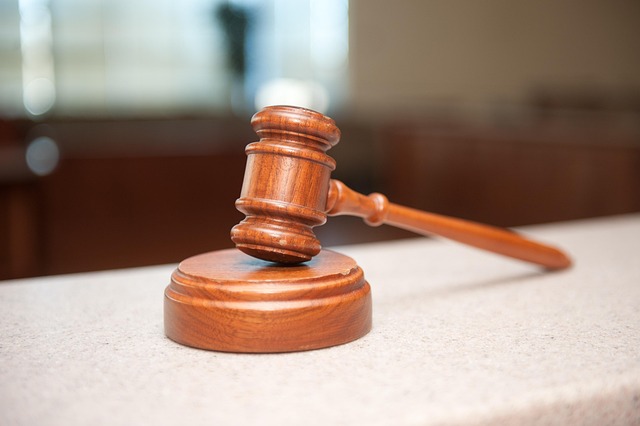Understanding Criminal Procedure Law Basics is essential for anyone interacting with the criminal justice system. It forms the backbone of criminal law, guiding investigations, arrests, and trials while ensuring fairness and protecting civil liberties. For individuals and businesses facing charges, it highlights the critical need for legal representation to navigate complex processes. Professionals must master principles like presumption of innocence and due process to secure just verdicts and protect rights. The evolving system balances public safety with accused rights, driven by collaborative efforts among key stakeholders.
Delve into the intricate world of criminal law enforcement, where justice meets due process. This comprehensive guide unravels the foundational principles that underpin criminal law, tracing its historical roots while exploring its modern application. From the moment an arrest is made to the final sentencing, we navigate the criminal procedure law basics, shedding light on rights guaranteed to the accused and the step-by-step processes involved. Discover the role of evidence in shaping investigations and gain insights into sentencing strategies, including post-conviction options that contribute to rehabilitation. Understanding these key aspects is essential for navigating the complex landscape of criminal justice.
- The Foundation of Criminal Law:
- – Overview of criminal law and its purpose.
- – Key principles and concepts in criminal justice.
- – Historical evolution and modern application.
The Foundation of Criminal Law:
The foundation of criminal law is deeply rooted in understanding the basics of criminal procedure. At its core, this involves comprehending the legal framework that guides investigations, arrests, and subsequent trials. The criminal justice system is designed to uphold fairness and justice by ensuring that individuals accused of crimes are afforded their due process rights. This includes the right to counsel, the presumption of innocence, and the burden of proof lying with the prosecution.
Within this system, the investigative and enforcement process plays a pivotal role. It encompasses all stages from the initial report of a crime to the eventual resolution through either plea bargains or jury trials. For instance, white-collar and economic crimes, which often involve complex financial fraud or misconduct, demand meticulous investigation due to their intricate nature. This process is crucial in ensuring that law enforcement agencies gather adequate evidence while respecting civil liberties and individual freedoms.
– Overview of criminal law and its purpose.
Understanding Criminal Procedure Law Basics is essential for anyone navigating the complex world of justice. Criminal law, a branch of legal study, focuses on crimes and their corresponding punishments. Its primary purpose is to protect society by deterring criminal behavior and rehabilitating offenders while ensuring fair treatment in high-stakes cases. This legal framework governs every step from arrest to sentencing, with each phase meticulously designed to uphold the principles of due process.
The intricacies of criminal procedure are crucial for both accused individuals and respective business entities to comprehend. A general criminal defense strategy involves challenging the prosecution’s evidence, protecting constitutional rights, and ensuring a fair trial. By understanding these basics, folks can better appreciate the importance of legal representation in navigating the labyrinthine criminal justice system, especially when facing serious charges.
– Key principles and concepts in criminal justice.
In the realm of criminal law enforcement, understanding the basics of criminal procedure is paramount. At its core, criminal justice revolves around key principles such as presumption of innocence, due process, and the right to a fair trial. These concepts form the bedrock upon which effective and just enforcement is built. Every step in the criminal process—from arrest to sentencing—must adhere to these fundamentals to ensure the rights of all individuals are protected.
An unprecedented track record of winning challenging defense verdicts highlights the importance of mastering criminal procedure law basics. By grasping the intricate details of evidence collection, admissibility, and legal defenses, legal professionals can navigate complex cases with confidence. This not only benefits clients but also strengthens the integrity of the respective business by fostering trust and ensuring justice is served.
– Historical evolution and modern application.
The evolution of criminal law enforcement has been a dynamic process, reflecting societal changes and the ever-increasing complexity of crime. Historically, criminal procedure was largely shaped by common law, with judicial precedents setting the stage for modern legal frameworks. Over time, the emphasis shifted from punitive measures to a more balanced approach, focusing on rehabilitation and due process. This transformation is evident in the development of laws that safeguard individual rights while ensuring justice. Today, understanding criminal procedure law basics is crucial for navigating the intricate web of rules and regulations designed to achieve extraordinary results in law enforcement.
The modern application of criminal law involves a sophisticated interplay between various stakeholders, including law enforcement agencies, prosecutors, defense attorneys, and the judiciary. This complex system is tasked with addressing diverse crimes, from minor offenses to serious felony charges. An unprecedented track record of successful prosecutions and convictions is not solely a result of stringent laws but also due to the dedicated work of professionals in the field. The collaboration between philanthropic and political communities has played a significant role in shaping policies that prioritize both public safety and the rights of the accused, fostering a more just and equitable society.
Understanding the foundations of criminal law is paramount for anyone interested in the intricacies of justice administration. The article has delved into the core principles, historical context, and contemporary applications that shape this vital area of legal practice. By grasping these basics, individuals can navigate the complex landscape of criminal procedure law, ensuring a fair and balanced approach to crime and punishment. This knowledge is essential for promoting transparency, accountability, and justice in society.






